Remember when television fathers wore cardigans instead of cargo shorts and dispensed wisdom instead of dad jokes? Back in the golden age of family sitcoms, our favorite TV patriarchs seemed to have life figured out in ways that made our own fathers look like they were winging it. These were the men who could solve any crisis in thirty minutes minus commercials, armed with nothing but common sense, a reassuring smile, and an ever-present pipe or coffee cup.
1. Ward Cleaver – Leave It to Beaver (1957-1963)
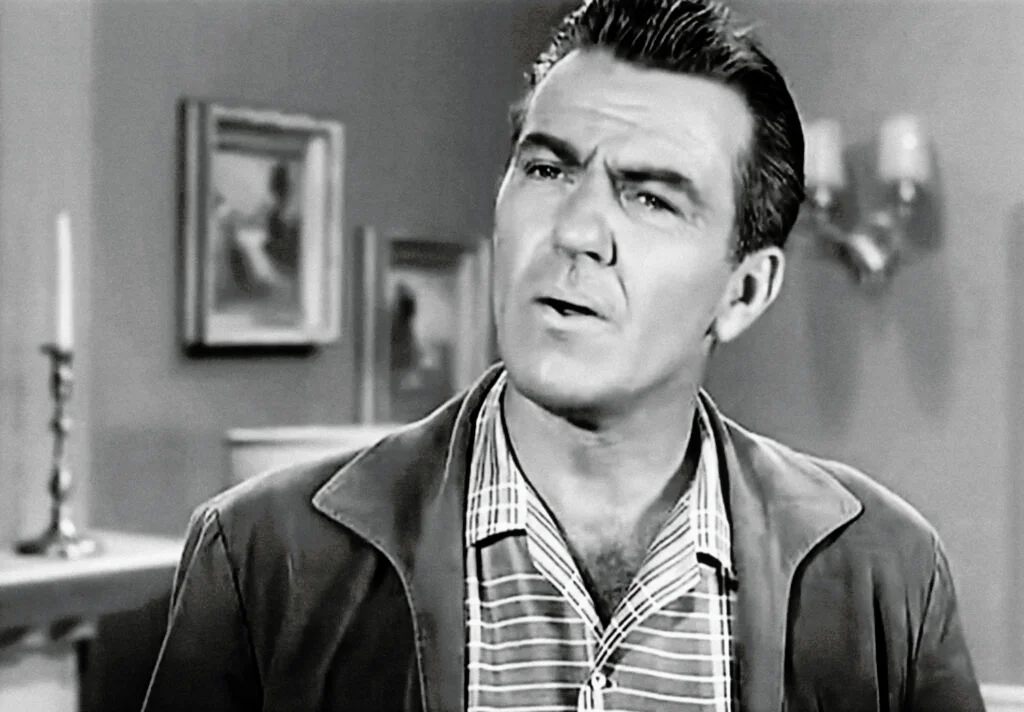
Ward Cleaver was the gold standard of television fatherhood, complete with his suit-and-tie approach to weekend yard work and an uncanny ability to turn every childhood mishap into a teachable moment. He never lost his temper, never raised his voice, and somehow always knew exactly what to say when Beaver got himself into another pickle. His biggest challenge seemed to be keeping his tie straight while delivering life lessons that would make a philosophy professor jealous. The Digital Bits offered a nostalgic retrospective on this show, led by its beloved characters, on its 60th anniversary.
The man had patience that bordered on supernatural, especially when dealing with Eddie Haskell’s transparent brown-nosing and Beaver’s creative interpretations of the truth. He treated every scraped knee and hurt feeling like it was the most important crisis in the world. Ward Cleaver didn’t just raise children; he cultivated future citizens with the precision of a master gardener tending prize roses.
2. Andy Taylor – The Andy Griffith Show (1960-1968)
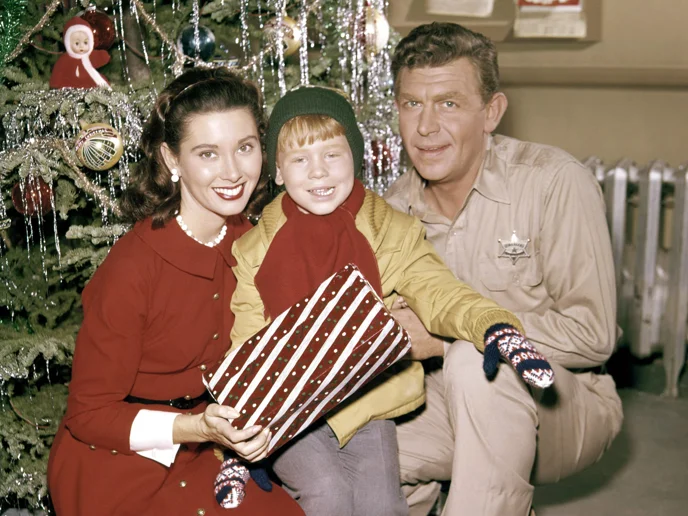
Sheriff Andy Taylor proved that you could keep the peace in Mayberry and raise a son without breaking a sweat or raising your voice above a gentle drawl. His kitchen table conversations with Opie were masterclasses in parenting, where every moral lesson was wrapped in small-town wisdom and delivered with the warmth of a summer evening on the front porch. Andy had this magical ability to let his son learn from mistakes without making him feel like the world’s biggest fool. Womans World also credits the show, and its leading dad, with reshaping television entirely.
Whether he was teaching Opie about honesty after a broken window or explaining the importance of treating everyone with respect, Andy Taylor made parenting look as easy as whistling his way down to the fishing hole. He understood that sometimes the best lessons came from sitting quietly and letting a child work through their own thoughts. In a world full of Deputy Barneys running around half-cocked, Andy Taylor was the steady hand that kept everything from spinning out of control.
3. Steve Douglas – My Three Sons (1960-1972)
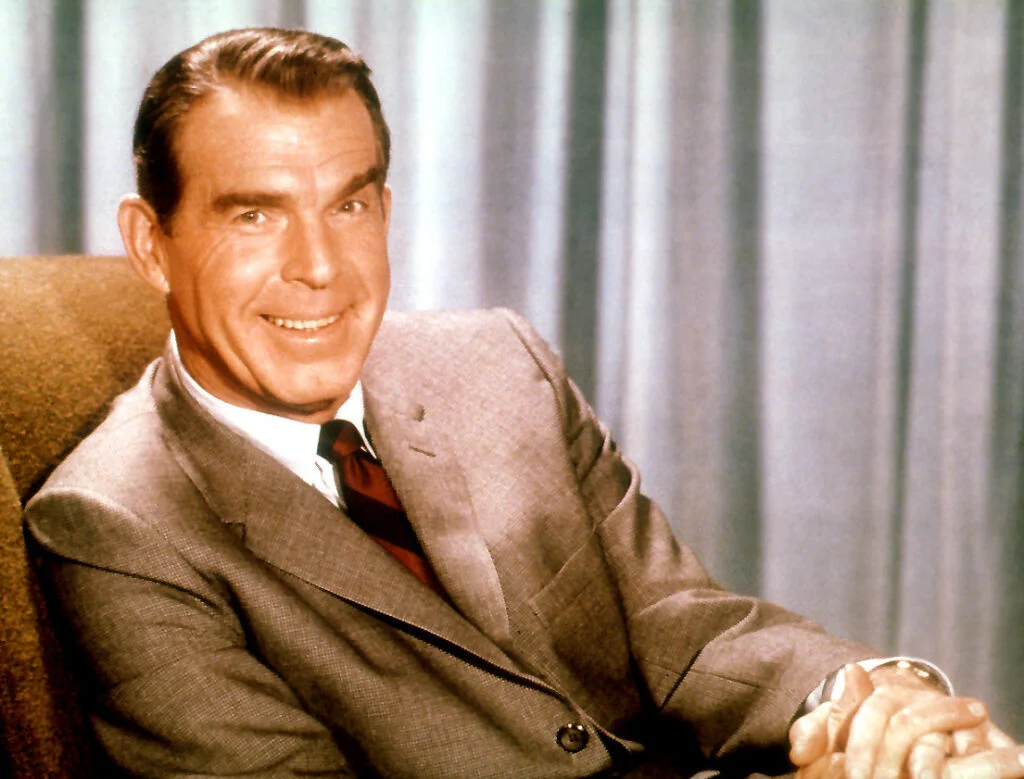
Steve Douglas juggled three boys and a demanding career as an aeronautical engineer while somehow maintaining his sanity and his perfectly pressed shirts. His household ran with military precision, thanks to a series of housekeepers who kept the chaos at bay while Steve dispensed fatherly advice between phone calls and business trips. The man could troubleshoot a rocket design and a teenage heartbreak with equal skill and patience. Television Academy reflects on this show’s role in putting a face to the nuclear family at a national level.
What made Steve Douglas special was his ability to treat each of his sons as individuals while maintaining fairness across the board. He never played favorites, never lost his cool during the typical teenage drama, and always seemed to have just the right amount of time for whatever crisis was brewing in the Douglas household. Steve proved that being a single father didn’t mean you had to sacrifice your career or your children’s emotional well-being.
4. Jim Anderson – Father Knows Best (1954-1960)
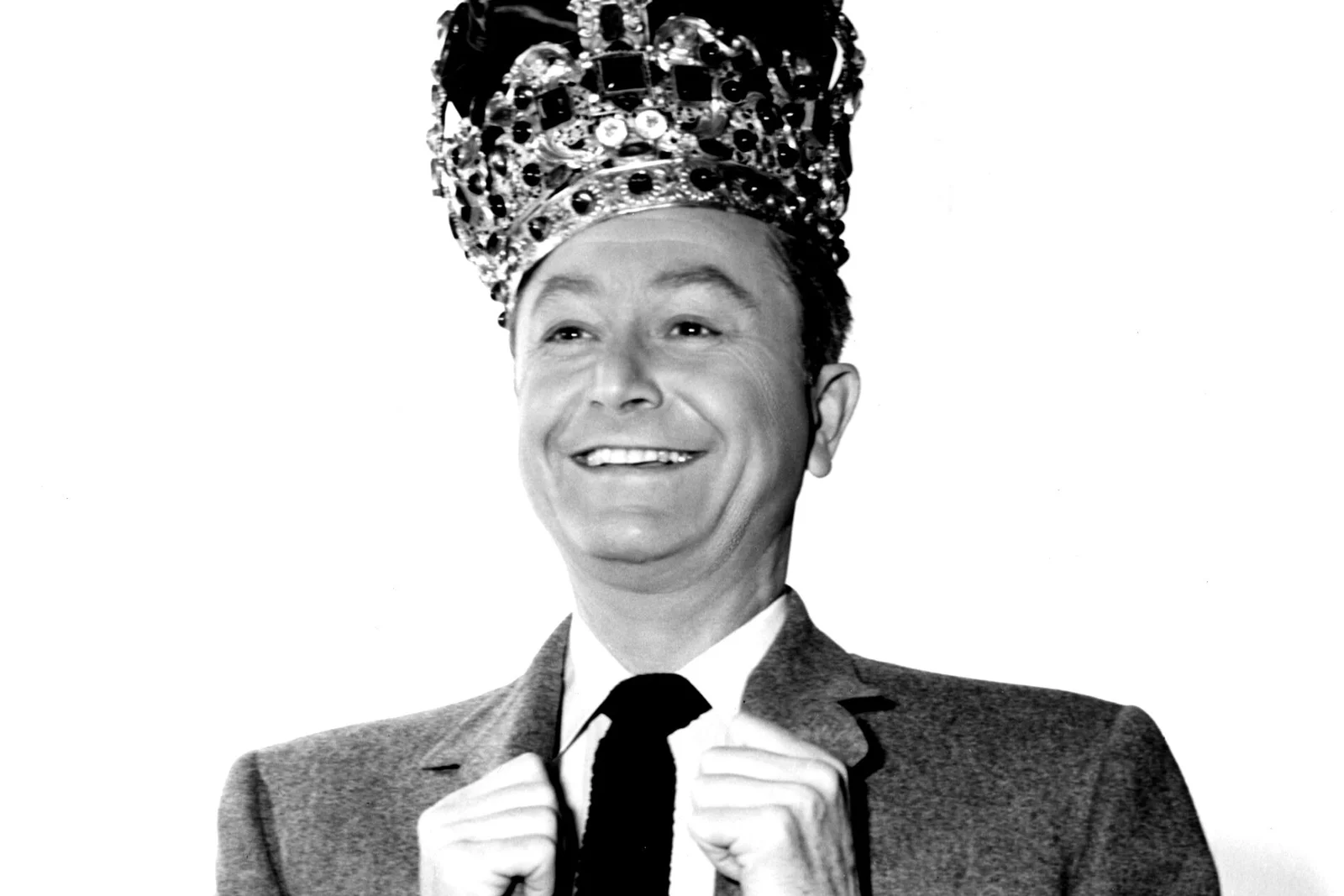
Jim Anderson was the prototype for the wise suburban father, complete with his insurance business success and an almost mystical ability to see through his children’s attempts at deception. He approached every family crisis with the methodical precision of an actuary calculating risk, but with the warmth of someone who genuinely enjoyed being a dad. His evening routine of settling into his favorite chair with the newspaper became the visual shorthand for paternal authority done right.
The genius of Jim Anderson was his talent for making his children think they’d come up with solutions on their own, when really he’d been gently steering them toward the right answer all along. He understood that growing up was hard work and that sometimes kids needed to feel smart and capable, even when they were making mistakes. Jim Anderson didn’t just solve problems; he built confidence and character one family dinner conversation at a time.
5. Mike Brady – The Brady Bunch (1969-1974)
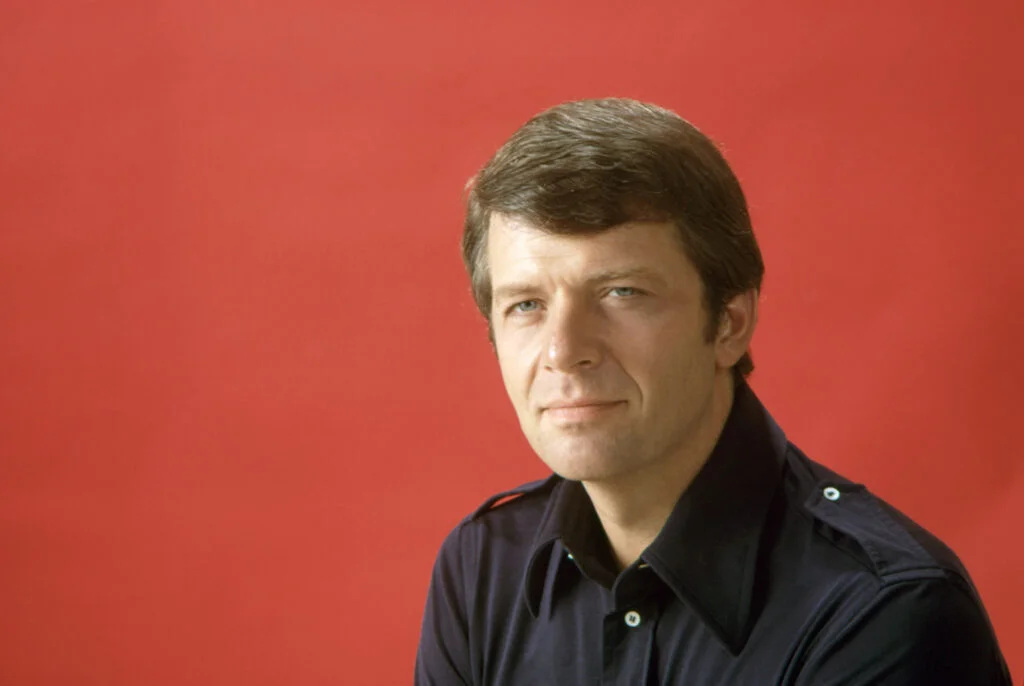
Mike Brady took on the ultimate parenting challenge by blending two families into one groovy household, and somehow made it look easier than assembling IKEA furniture. His architectural background clearly served him well in building the foundation for a family structure that could withstand everything from teenage drama to stolen tiki idols. Mike had this remarkable ability to gather all six kids around for a family meeting and actually get them to listen without bribing them with ice cream.
The man deserved a medal for maintaining his composure during the Great Marcia Hair Crisis and countless other domestic emergencies that would have sent lesser fathers running for the hills. He treated Brady family problems with the same careful planning he brought to designing houses, making sure every solution was built to last. Mike Brady proved that love multiplies rather than divides, and that patience is the most important tool in any father’s toolbox.
6. Ben Cartwright – Bonanza (1959-1973)
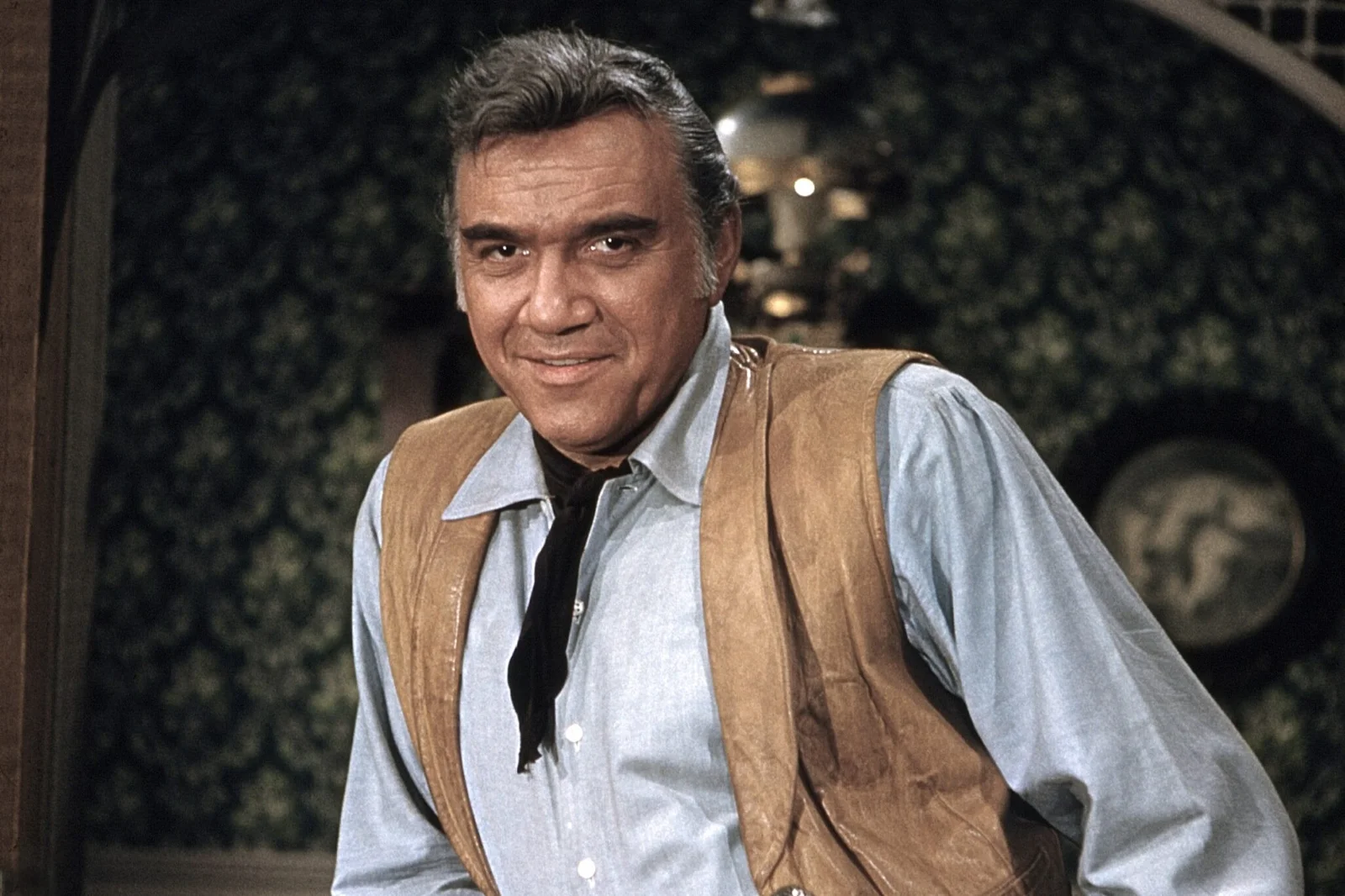
Ben Cartwright managed the Ponderosa ranch and three grown sons with the same steady leadership that made him one of Nevada’s most respected citizens. His boys might have been adults, but they still gathered around the dinner table to hash out problems and seek their father’s counsel on everything from business decisions to matters of the heart. Ben had this way of listening to all sides of an argument before offering his wisdom, usually while standing by the fireplace with his hands clasped behind his back.
What set Ben Cartwright apart was his understanding that his sons were individuals with their own strengths and weaknesses, and he parented each one accordingly. He could be stern when Little Joe’s impulsiveness got out of hand, gentle when Hoss needed encouragement, and diplomatic when Adam’s intellectual approach clashed with frontier practicality. Ben Cartwright proved that good parenting doesn’t end when your children reach adulthood; it just evolves into a different kind of guidance and support.
7. Rob Petrie – The Dick Van Dyke Show (1961-1966)
Rob Petrie balanced his career as a television comedy writer with fatherhood in a way that made both look like the most natural things in the world. His relationship with young Ritchie was built on mutual respect and genuine affection, with Rob treating his son like a small person with valid thoughts and feelings rather than just a miniature adult-in-training. Their conversations were filled with the same wit and warmth that made Rob successful in the writers’ room.
The beauty of Rob Petrie as a father was his willingness to admit when he didn’t have all the answers, often turning to Laura or even Ritchie himself for perspective on family situations. He understood that parenting was a team sport and that sometimes the best thing a father could do was listen more than he talked. Rob Petrie showed us that being a good dad didn’t require being perfect; it just required being present and paying attention.
8. Howard Cunningham – Happy Days (1974-1984)
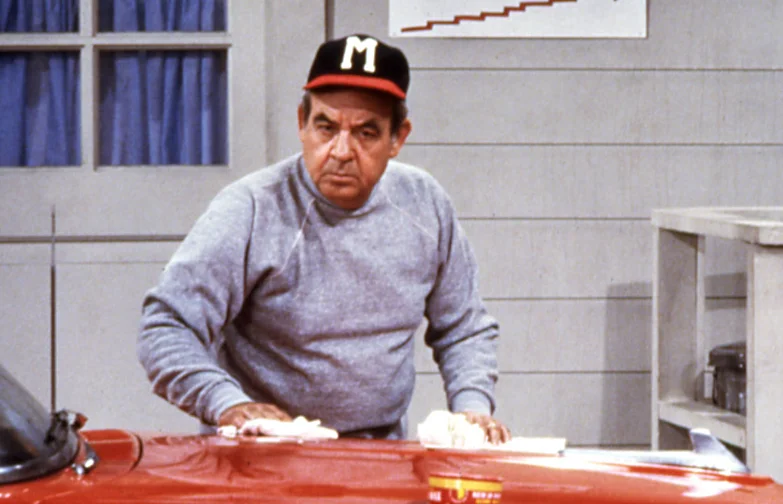
Howard Cunningham, or “Mr. C” as the Fonz respectfully called him, represented the quintessential 1950s father trying to navigate the changing times while keeping his family grounded in solid values. His hardware store provided the perfect metaphor for his parenting style: practical, reliable, and always having the right tool for whatever job needed doing. Howard had this gift for making everyone feel welcome in the Cunningham home, whether it was Richie’s friends or even the leather-jacketed tough guy who called him “Mr. C.”
What made Howard Cunningham special was his ability to bridge the generation gap without compromising his principles or talking down to young people. He treated Richie and Joanie’s problems with the same seriousness he brought to running his business, understanding that what seemed small to adults could feel enormous to teenagers. Howard Cunningham proved that respect is a two-way street and that the best fathers earn their authority through consistency and kindness rather than demanding it through intimidation.
9. Ozzie Nelson – The Adventures of Ozzie and Harriet (1952-1966)
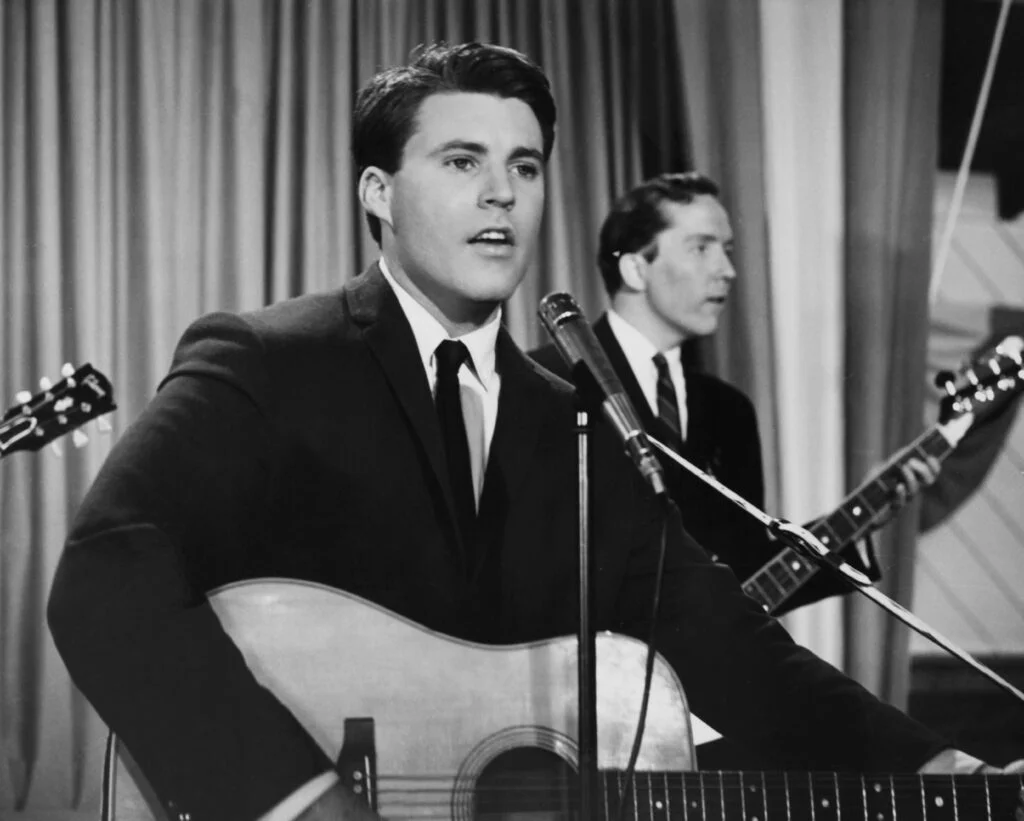
Ozzie Nelson had the luxury of seeming perpetually available for whatever domestic crisis arose in the Nelson household, always ready to drop everything to help his boys navigate the complexities of growing up in suburban America. His approach to fatherhood was refreshingly hands-on for the era, involving himself in his sons’ activities and friendships in ways that felt supportive rather than intrusive. Ozzie made parenting look like the most natural thing in the world, even when dealing with the usual teenage nonsense that kept the Nelson household interesting.
The genius of Ozzie Nelson was his ability to let his boys make mistakes without making them feel like failures, understanding that growing up required a certain amount of trial and error. He had this knack for being in the right place at the right time with exactly the right piece of advice, delivered in a way that didn’t make his sons feel lectured or talked down to. Ozzie Nelson showed us that being an involved father didn’t mean being a helicopter parent; it meant being available when your children needed you most.
10. Danny Williams – Make Room for Daddy/The Danny Thomas Show (1953-1964)
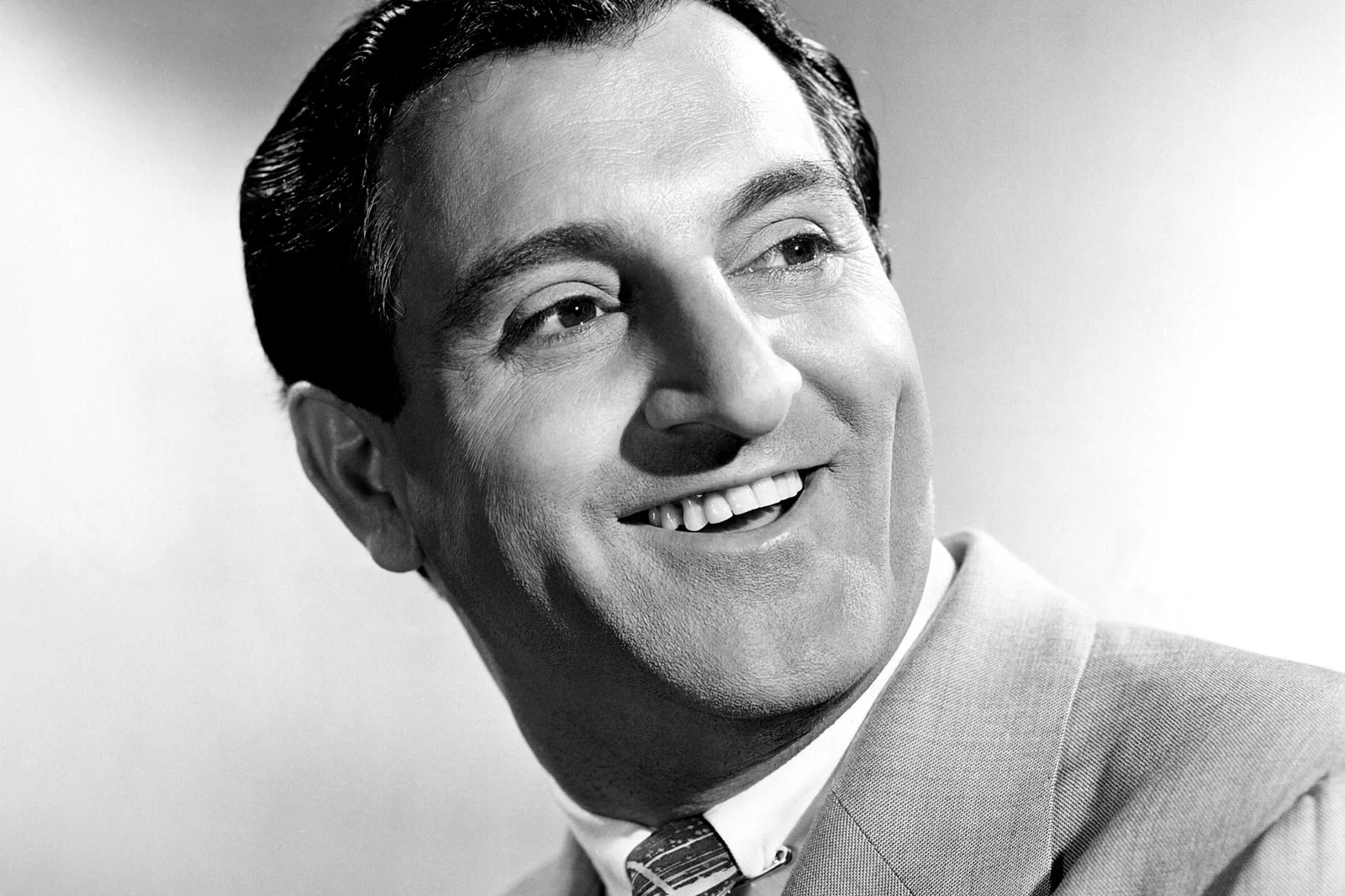
Danny Williams juggled his career as a nightclub entertainer with raising his children, bringing the same energy and humor to family life that he displayed on stage. His parenting style was animated and expressive, treating family discussions like performances where everyone got a chance to be heard and appreciated. Danny understood that laughter could defuse tension and that sometimes the best way to teach a lesson was through a well-timed joke or funny story.
What made Danny Williams memorable was his willingness to admit his mistakes and learn from them, showing his children that adults don’t have to be perfect to be good parents. He brought a theatrical flair to everyday family moments, making even mundane conversations feel special and important. Danny Williams proved that parenting could be entertaining without being frivolous, and that a sense of humor was one of the most valuable gifts a father could give his children.
11. Tom Corbett – The Courtship of Eddie’s Father (1969-1972)
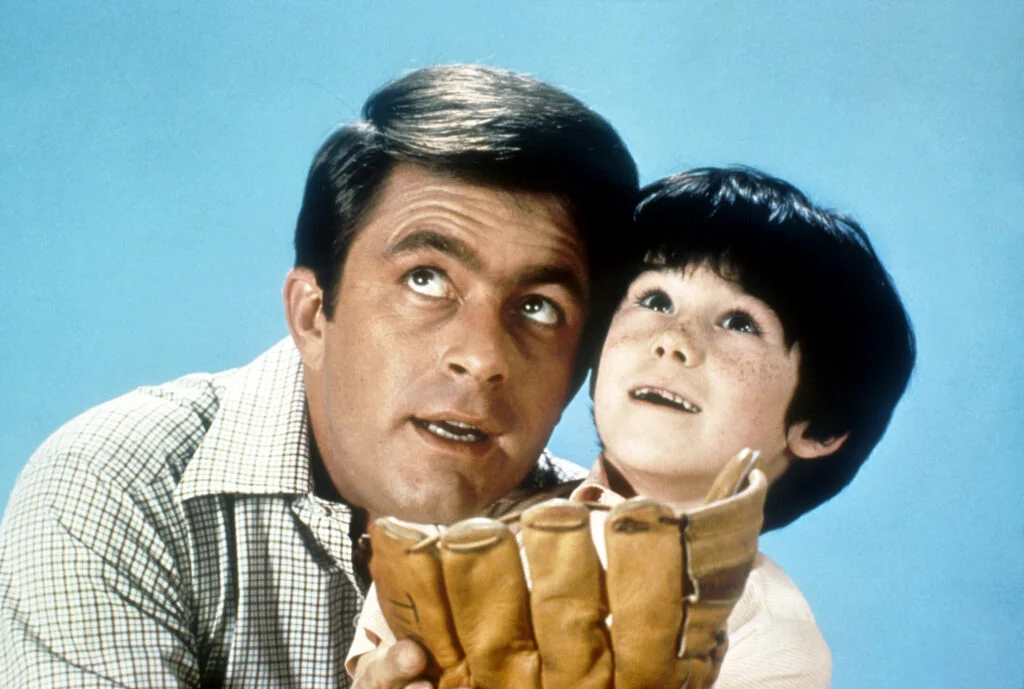
Tom Corbett navigated single fatherhood with a sensitivity and emotional intelligence that was ahead of its time, treating his relationship with young Eddie as a genuine partnership built on mutual respect and open communication. His approach to parenting was refreshingly honest, acknowledging his own uncertainties while still providing the stability and guidance his son needed. Tom understood that losing a mother didn’t mean Eddie had to lose his childhood, and he worked hard to keep their home filled with warmth and laughter.
The beauty of Tom Corbett’s parenting was his willingness to learn from Eddie while still maintaining his role as the adult in charge of making the big decisions. He listened to his son’s observations about life and relationships with the kind of attention most adults reserved for other adults. Tom Corbett showed us that single parenting didn’t have to mean doing everything alone, and that sometimes the best parenting advice came from paying attention to your child’s natural wisdom and intuition.
12. Fred MacMurray – My Three Sons (Various Characters)
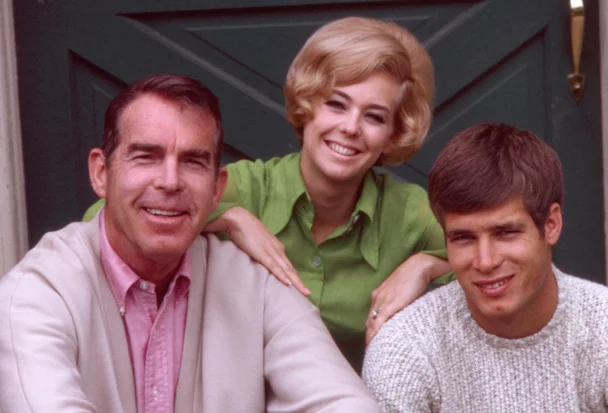
Fred MacMurray’s television fathers, whether playing Steve Douglas or other paternal roles, embodied a calm, methodical approach to child-rearing that made even the most chaotic household situations seem manageable. His characters had this remarkable ability to remain unflappable in the face of teenage drama, approaching each crisis with the same steady demeanor he might use to review architectural blueprints. MacMurray’s fathers were problem-solvers who believed that most issues could be resolved through patient conversation and logical thinking.
What distinguished MacMurray’s paternal characters was their respect for their children’s intelligence and their belief that young people were capable of making good decisions when given proper guidance. He never talked down to his television sons, instead treating them like junior partners in the family business of growing up. MacMurray’s fathers understood that discipline was about teaching rather than punishing, and that the goal of parenting was to raise independent, thoughtful adults.
13. Lucas McCain – The Rifleman (1958-1963)
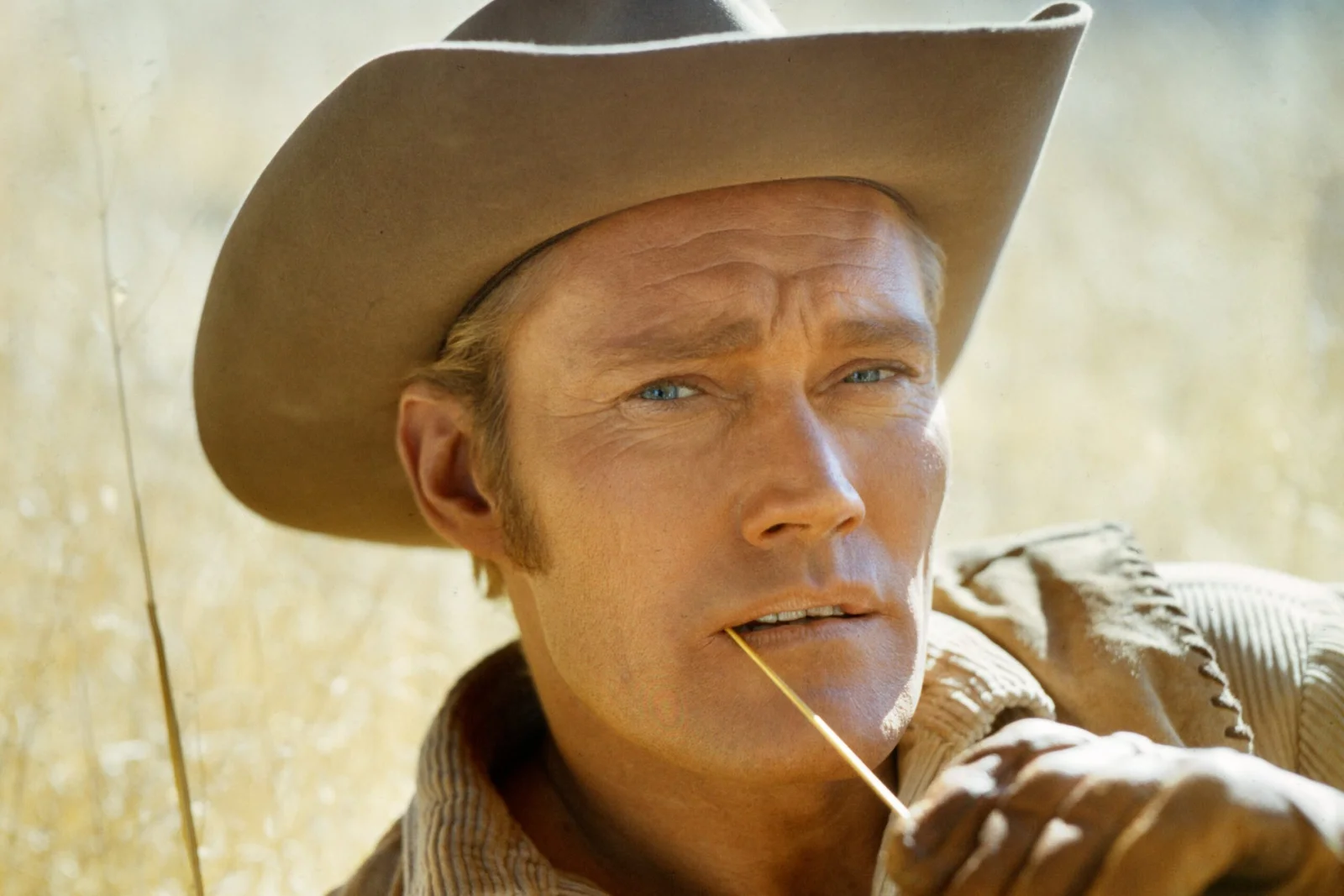
Lucas McCain proved that you could be both a tough frontiersman and a tender father, raising young Mark on a New Mexico ranch while teaching him how to be both strong and compassionate. His parenting philosophy was built on the understanding that the frontier required men who could handle themselves in dangerous situations while still maintaining their humanity and moral compass. Lucas never hesitated to put himself between his son and danger, but he also made sure Mark understood that real strength came from knowing when not to fight.
The relationship between Lucas and Mark McCain was built on mutual respect and honest communication, with Lucas treating his son as a future man rather than a permanent child. He understood that frontier life would demand maturity from Mark at an early age, so he made sure every lesson prepared his son for the responsibilities of adult life. Lucas McCain showed us that being protective didn’t mean being overprotective, and that the best fathers prepare their children to face the world with confidence and integrity.
These television fathers gave us a template for what family life could look like when everyone worked together toward common goals of respect, understanding, and genuine affection. They made parenting look like the most rewarding job in the world, even when dealing with the everyday chaos that comes with raising children who have minds of their own. While real life rarely wrapped up as neatly as a thirty-minute episode, these TV dads showed us that patience, wisdom, and unconditional love could solve most problems, and that the best fathers were the ones who never stopped learning how to be better.


